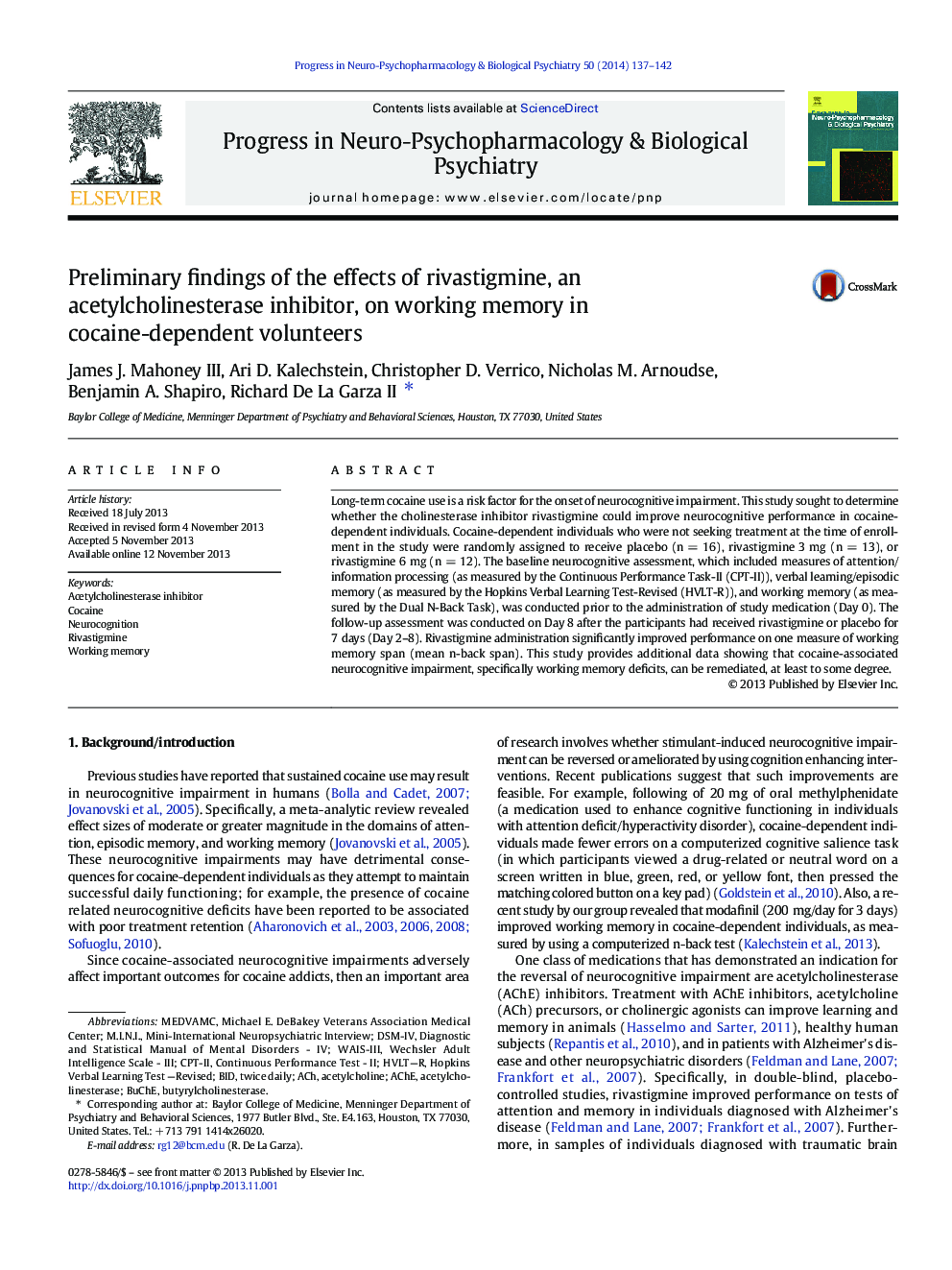| Article ID | Journal | Published Year | Pages | File Type |
|---|---|---|---|---|
| 5844472 | Progress in Neuro-Psychopharmacology and Biological Psychiatry | 2014 | 6 Pages |
Abstract
Long-term cocaine use is a risk factor for the onset of neurocognitive impairment. This study sought to determine whether the cholinesterase inhibitor rivastigmine could improve neurocognitive performance in cocaine-dependent individuals. Cocaine-dependent individuals who were not seeking treatment at the time of enrollment in the study were randomly assigned to receive placebo (n = 16), rivastigmine 3 mg (n = 13), or rivastigmine 6 mg (n = 12). The baseline neurocognitive assessment, which included measures of attention/information processing (as measured by the Continuous Performance Task-II (CPT-II)), verbal learning/episodic memory (as measured by the Hopkins Verbal Learning Test-Revised (HVLT-R)), and working memory (as measured by the Dual N-Back Task), was conducted prior to the administration of study medication (Day 0). The follow-up assessment was conducted on Day 8 after the participants had received rivastigmine or placebo for 7 days (Day 2-8). Rivastigmine administration significantly improved performance on one measure of working memory span (mean n-back span). This study provides additional data showing that cocaine-associated neurocognitive impairment, specifically working memory deficits, can be remediated, at least to some degree.
Keywords
Related Topics
Life Sciences
Neuroscience
Biological Psychiatry
Authors
James J. III, Ari D. Kalechstein, Christopher D. Verrico, Nicholas M. Arnoudse, Benjamin A. Shapiro, Richard II,
